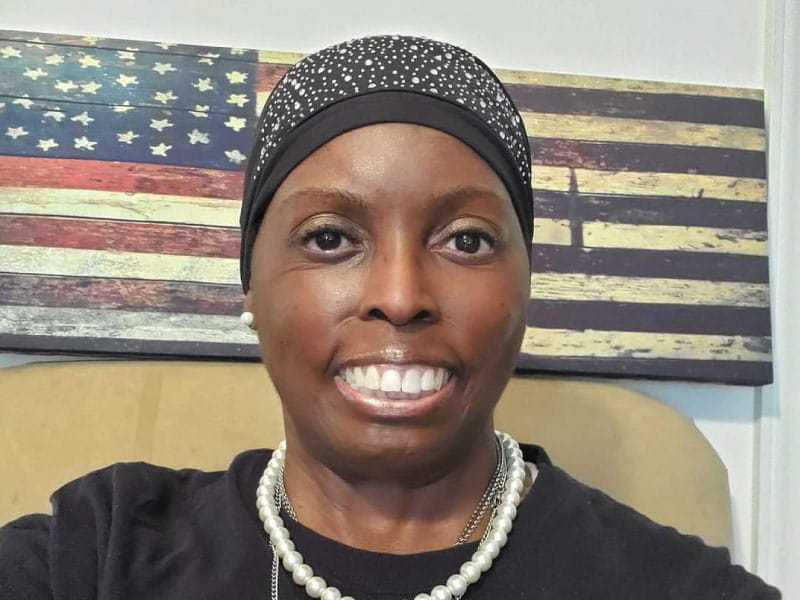
As a logistics planner with the U.S. Air Force, Kassandra Benson deployed to Pakistan, where she worked long days and nights coordinating and troubleshooting special operations troops’ equipment and travel needs.
After a year abroad, she returned home. A post-deployment health check at Langley Air Force Base in Virginia showed that her blood pressure was slightly elevated. Otherwise, her health was good.
Benson took a week of leave and flew to Minnesota to visit her family. During her leave, she felt exhausted.
She noticed her calves were swelling, which had never happened before. She thought her body was acclimating to being back from deployment. Her fatigue was also odd for someone so active and fit.
Two months later, at home in Newport News, Virginia, Benson hopped into the shower during Memorial Day weekend to get ready for a barbecue. She started coughing.
After showering, the coughing intensified. She brought up blood and couldn’t catch her breath.
“I think I need to go to the emergency room,” she told her boyfriend.
At the hospital, tests showed Benson had congestive heart failure. Her heart wasn’t efficiently pumping blood. She was coughing because of fluid buildup in her lungs.
RELATED: What Is Congestive Heart Failure?
She ended up spending a week in the hospital. Doctors performed a cardiac catheterization procedure to get a better look inside her heart. They found no blockages.
A month later, at a follow-up appointment with a new cardiologist, an ultrasound uncovered that she had mitral valve regurgitation. It’s a type of heart valve disease where the valve between the left heart chambers doesn’t completely close, allowing blood to leak backward into the chamber it just left.
Her doctor gave her medication. She continued to work, despite the fatigue. But over the next few weeks, her body








